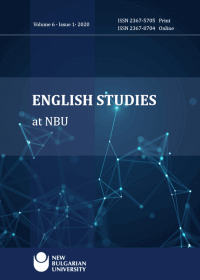The Politics and Aesthetics of Storytelling in Diana Abu-Jaber’s Crescent: A Strategic Implementation of an Old Folkloric Arab Tradition
The Politics and Aesthetics of Storytelling in Diana Abu-Jaber’s Crescent: A Strategic Implementation of an Old Folkloric Arab Tradition
Author(s): Ishak BerrebbahSubject(s): History, Social Sciences, Language and Literature Studies, Education, Cultural history, Foreign languages learning, Theoretical Linguistics, Applied Linguistics, Comparative history, Ethnohistory, Political history, Phonetics / Phonology, Morphology, Lexis, Historical Linguistics, Comparative Linguistics, Higher Education , Translation Studies
Published by: Нов български университет
Keywords: Arab American; orality; storytelling; identity; Diana Abu-Jaber; hybrid text
Summary/Abstract: This paper discusses the politics and multi-functionality of storytelling in Diana Abu-Jaber’s novel Crescent (2003). I argue that the strategic use of storytelling places Crescent as a complex hybrid text that projects the nature, and development, of Arab American literature in the contemporary era. In addition to having the practice of storytelling as an apparatus to project identity in Crescent, Abu-Jaber reappropriates its empowered status in Arab culture as well as politicizes its image in the mind of her readers. Besides employing critical and analytical approaches to the novel, this paper relies on arguments and perspectives of prominent postcolonial and literary critics and theorists such as Edward Said, Suzanne Keen, Walter Benjamin, and Samaya Sami Sabry, to name a few.
Journal: English Studies at NBU
- Issue Year: 6/2020
- Issue No: 1
- Page Range: 127-144
- Page Count: 18
- Language: English

